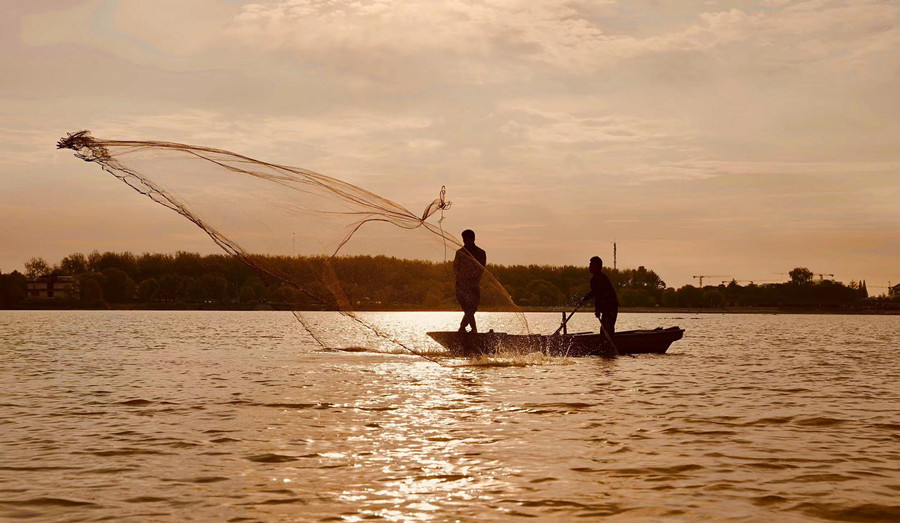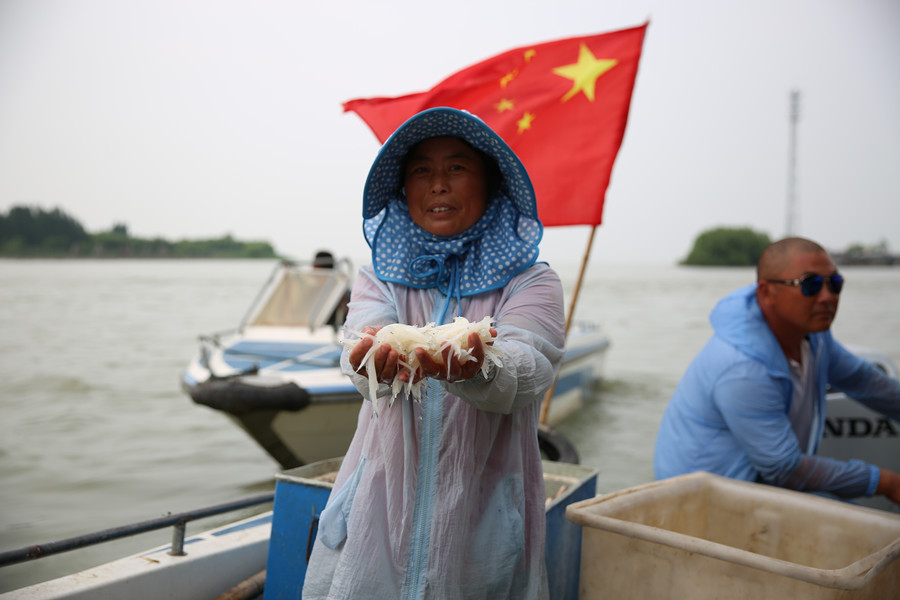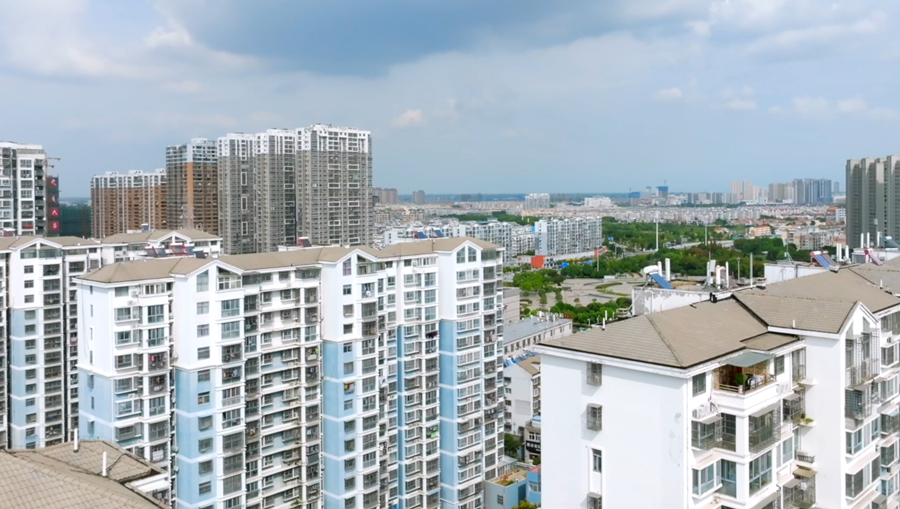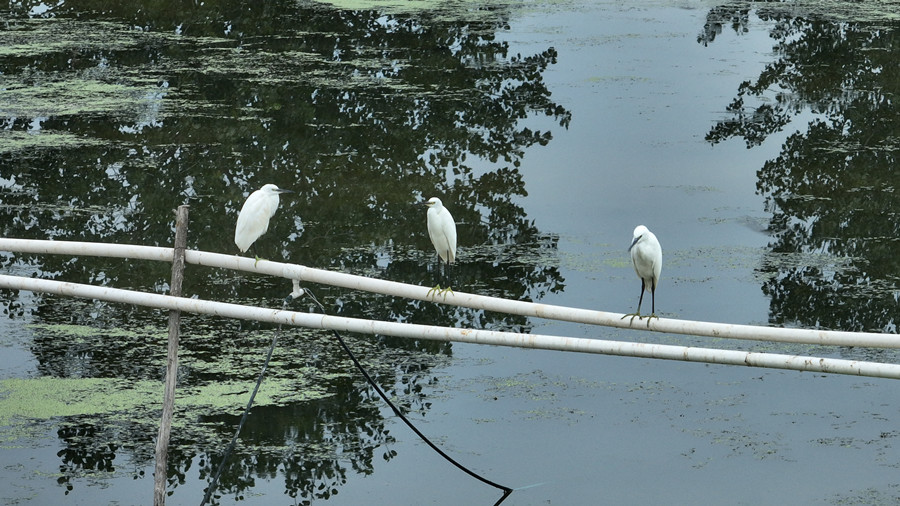Transformation: from Wandering on the Lake to Settling down on the Land

American architect Adam Brillhart and Ntangu Eliezer from the DRC, a PhD student of the School of Architecture at Southeast University, recently visited Hongze Lake in Hongze District, Huai'an City. They met residents who gave up fishing in line with the government policy to protect the lake’s environment and also explored the province’s efforts to promote eco-friendly development while safeguarding people’s livelihoods.
Hongze Lake is the fourth largest freshwater lake in China. There used to be more than 7,000 houseboats docked to the shore. For nearly 20,000 fishermen here, the rich aquatic resources of Hongze Lake used to be their main source of income. Now, all fishermen here stopped fishing and have moved on land.

At 5.30 am, the aquatic products wholesale market is bustling with people who are busy but happy. Yang Junru, now a crab farmer in Hongxiang Village, is also a retired fishermen. “For me, he does not look like a fisherman. I think he is a person who lives a good life on land.” said Adam.
For fishermen living on the lake, the boats were their homes. Yang, who is now 60 years old, has 40 years of fishing experience. "Fishing tools have become much more advanced. As the economy becomes better, more and more people come to buy fish from Hongze Lake. So on a lucky day, I can earn 10,000 to 20,000 yuan."
To protect the ecological environment and provide the lake a chance to rest, government in Jiangsu decided to begin the 10-year fishing ban starting from October 10, 2020, which has greatly changed the life of fishermen like Yang.

People had many questions at that time such as where to live and how to make a living. With the support of government and individual efforts, these fishermen finally settled down on land and began their own industry.
Yang lives in a residential area in the county with very convenient transport. Although the building doesn’t look new from outside, his home is actually quite good, bright and clean. It has two bedrooms and all kinds of appliances and daily necessities.
Yang used the government subsidies and his savings to buy this second-hand house of 60 square meters. After a simple renovation, Yang and his wife moved into their new home on land in December 2020.
In the view of Adam and Ntangu, this house signifies that the retired fishermen start a new life on land.

To support livelihoods, the government introduced measures to let the eligible elderly people to be covered by endowment insurance and help young people to find new employment opportunities. In September 2020, secretary of CPC branch of Hongxiang Village, established a co-operative crab-breeding base to prepare fishermen for their re-employment, and Yang contracted 85 mu of the base.
"There are some interesting ideas here, similar to the philosophy of ‘give to get’ in traditional Chinese culture. Meanwhile, I also see how the local government has worked hard to achieve sustainable development goals." Adam wrote in his notebook.
Government in Jiangsu has continued to explore a development model that promotes ecological governance along with guarantee of people's livelihoods. In announcing the fishing ban in 2020, the government also help those fishermen adjust to a new life on land.

For the retired fishermen like Yang, the meaning of ‘home’ has been enriched in this transformation, although the location and living ways have changed. By protecting this shared home of mankind, millions of generations of families can live happily in their own homes for a long time.
From the transition of houseboats to new sweet homes on land, Adam has gained a new understanding of changes amid Jiangsu’s efforts to protect the environment.
Contact us at english@jschina.com.cn